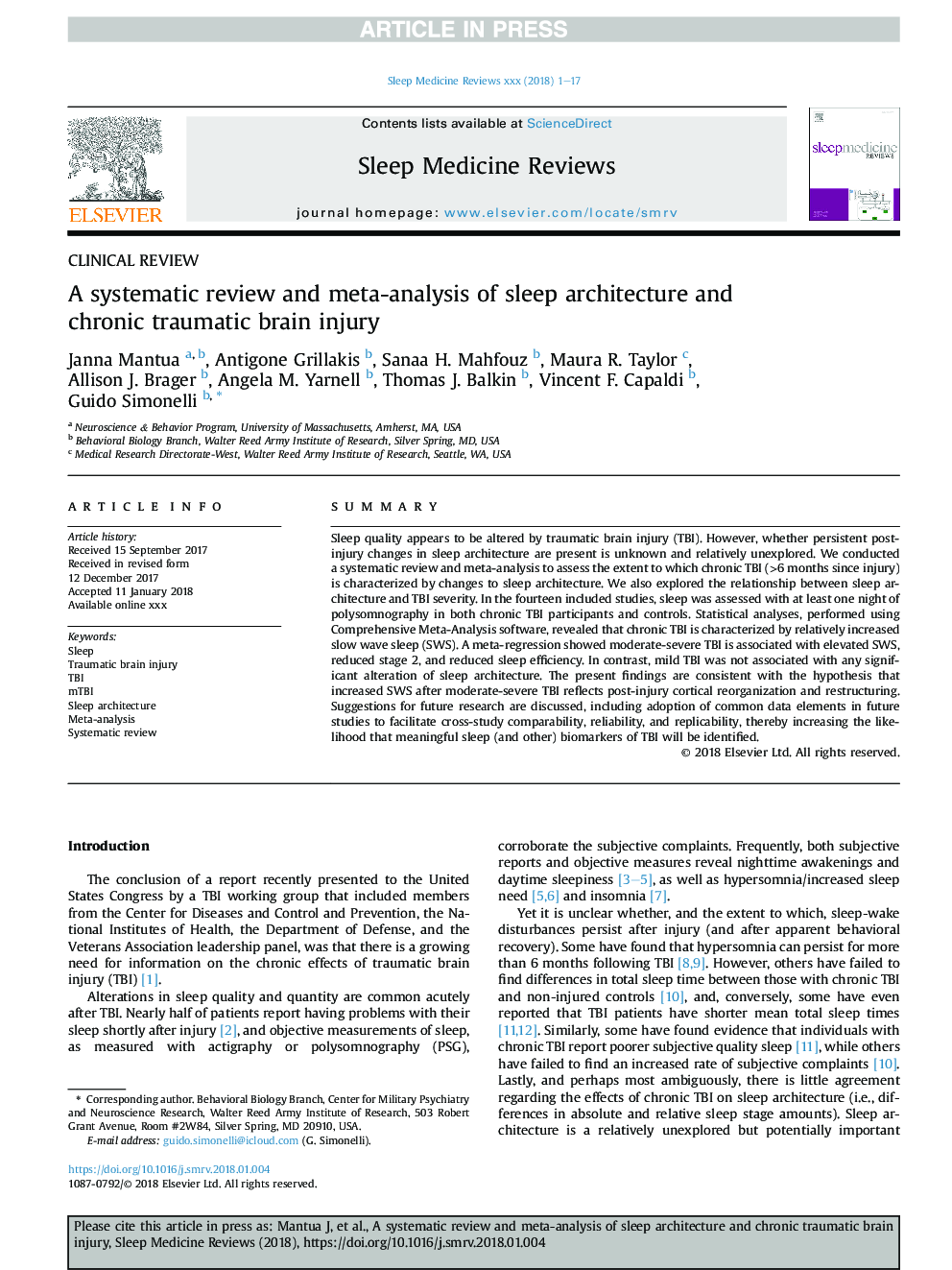| Article ID | Journal | Published Year | Pages | File Type |
|---|---|---|---|---|
| 8963410 | Sleep Medicine Reviews | 2018 | 17 Pages |
Abstract
Sleep quality appears to be altered by traumatic brain injury (TBI). However, whether persistent post-injury changes in sleep architecture are present is unknown and relatively unexplored. We conducted a systematic review and meta-analysis to assess the extent to which chronic TBI (>6 months since injury) is characterized by changes to sleep architecture. We also explored the relationship between sleep architecture and TBI severity. In the fourteen included studies, sleep was assessed with at least one night of polysomnography in both chronic TBI participants and controls. Statistical analyses, performed using Comprehensive Meta-Analysis software, revealed that chronic TBI is characterized by relatively increased slow wave sleep (SWS). A meta-regression showed moderate-severe TBI is associated with elevated SWS, reduced stage 2, and reduced sleep efficiency. In contrast, mild TBI was not associated with any significant alteration of sleep architecture. The present findings are consistent with the hypothesis that increased SWS after moderate-severe TBI reflects post-injury cortical reorganization and restructuring. Suggestions for future research are discussed, including adoption of common data elements in future studies to facilitate cross-study comparability, reliability, and replicability, thereby increasing the likelihood that meaningful sleep (and other) biomarkers of TBI will be identified.
Related Topics
Life Sciences
Neuroscience
Neurology
Authors
Janna Mantua, Antigone Grillakis, Sanaa H. Mahfouz, Maura R. Taylor, Allison J. Brager, Angela M. Yarnell, Thomas J. Balkin, Vincent F. Capaldi, Guido Simonelli,
